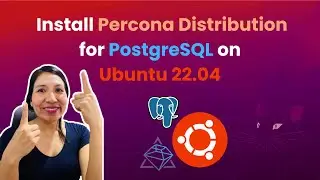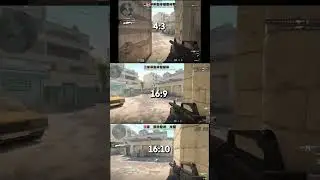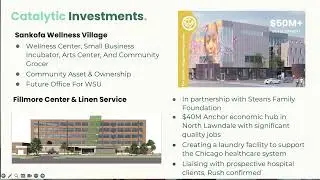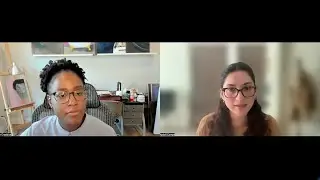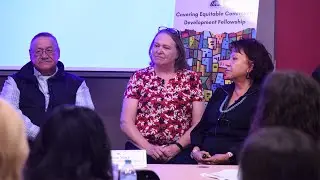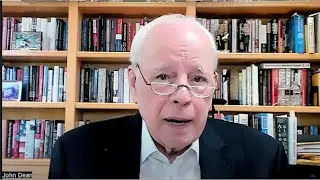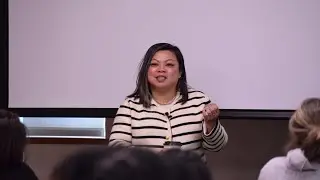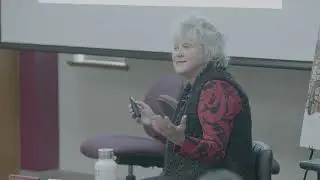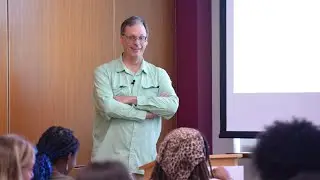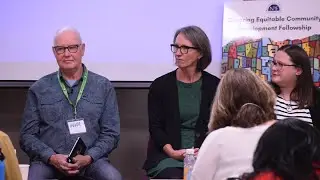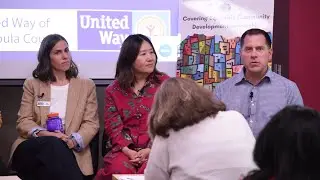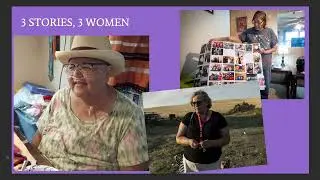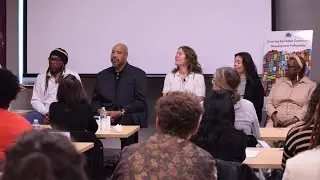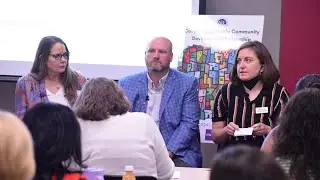Covering Child Care’s Role in Community Development
The Missoula Economic Partnership and Zero to Five Missoula Link Up to Stabilize Child Care
When it's "more expensive to pay for childcare than to go back to the job," solutions are needed. Here's what one small city did.
by Rachel Jones, National Press Foundation
Many communities nationwide were already struggling with major economic shifts before COVID upended progress across sectors. For Grant Kier, CEO of the Missoula Economic Partnership, one undeniable answer emerged for why so many young people with families were choosing to leave the region.
“We were fundamentally starting to see that disparity of people who had wealth and were successful and people who didn’t grow greater and greater,” Kier told NPF Covering Community Development journalism fellows.
“Our state right now has 41,000 job openings, and there are only 13,000 people who are available to work and not working. So that gap is a huge strain on employers – and childcare adds to that strain. Childcare creates a situation where a young family, whether it’s a father or mother, can’t get back to work because it is more expensive to pay for childcare than to go back to the job, or they simply can’t find child care,” Kier said. “Understanding that dynamic and being able to articulate it clearly to employers to motivate them to see that they win when we invest in childcare has been a big part of our commitment to this issue.”
Kier credited the leadership of Missoula’s longest serving mayor, the late John Engen, for embracing the role of childcare in economic stability.
“Our organization really came to understand how incredibly challenging child-care was to provide, how rare it was to find as a parent, and also how transformative it was to invest in that one thing to make a huge difference in the trajectory of a human being’s life forever.”
Kier was joined by Sally Henkel, the Missoula Child Care Advantage coordinator for the United Way’s Zero to Five Missoula program. By accessing state infrastructure funding, the organization has transformed childcare availability for working parents and increased opportunities for people wanting to start their own businesses, Henkel said.
“We wanted to focus on expanding slots in the short term, so in Missoula that means infant and toddler care and extended hours. We wanted to engage sectors that typically are not engaged in childcare solutions, and long-term, we really wanted to stabilize the childcare sector as a whole,” she said. “If you’re not focusing on this as a solution within childcare, nothing’s going to happen. You have to stand up the sector that is struggling the most for it to actually be sustainable.”
But there’s still one inescapable challenge: retaining quality childcare staff.
“Childcare providers don’t make that much money because you basically operate totally on the tuition,” River Yang, founder of Montessori Plus International, told the journalists. “Although we offer the best competitive pay we could afford for child care, for our teachers, most teachers who have the passion, intelligence, ability, those kind of people can earn a lot more in a different field. It takes a big heart to stay in our field.”
Speakers:
Sally Henkel, Coordinator, Missoula Child Care Advantage, Zero to Five Missoula County
Grant Kier, CEO, Missoula Economic Partnership
River Yang, Founder & Director, Montessori Plus International
Transcript, summary and resources: https://nationalpress.org/topic/cover...
The Covering Equitable Community Development journalism fellowship was sponsored by the Robert Wood Johnson Foundation. The National Press Foundation is solely responsible for its content.
This video was produced within the Evelyn Y. Davis studios.


